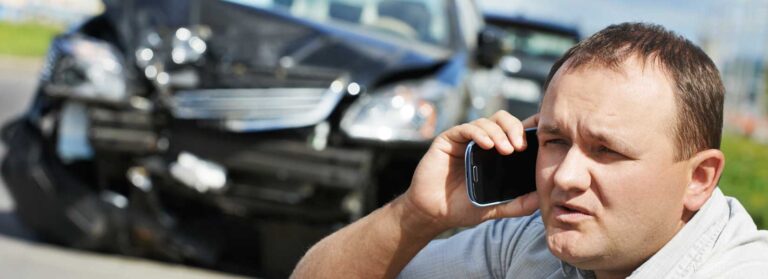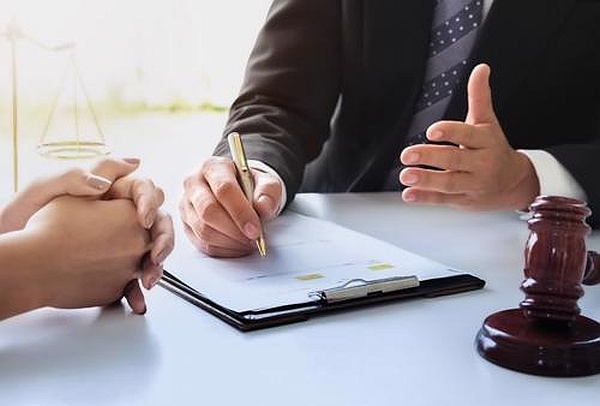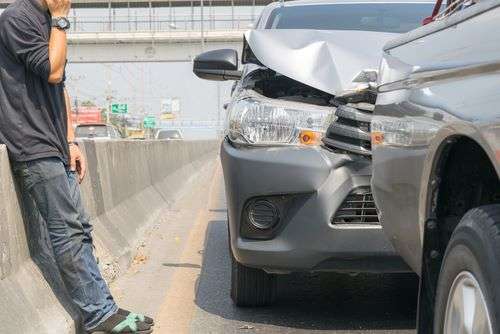The moments after a car crash in Fayetteville can be pretty confusing. While you try to recover from the shock, there are numerous things to do simultaneously. If you’re sure that another driver caused your injury, you’ll likely contemplate a personal injury claim against them. Luckily, you can get that sorted out by dialing your Fayetteville car accident attorney as soon as you can.
However, even when your lawyer has got you covered, you still need to understand the nitty-gritty of your case. Otherwise, everything can seem overwhelming and complex. You will also be unable to help your attorney in any way if you don’t understand the important aspects of your traffic accident case.
Over time, we’ve discovered that most of our claimants’ confusion comes from little understanding of personal injury terms. If that sounds like you, you don’t have to worry anymore. In this article, you’ll learn the meanings of specific terms common to every automobile crash case. Let’s begin.
Common Terms You’ll Hear in a Fayetteville Traffic Crash Case
As your personal injury case progresses, you’ll likely hear the following terms:
-
Torts
Torts refer to non-criminal and non-contractual activities that hurt someone else. Since torts are not criminal, the offender wouldn’t be arrested or convicted for any offense. However, since they hurt someone, they must provide compensation for them. Torts can also give rise to a civil lawsuit.
-
Negligence
Negligence refers to a careless action that injures someone else physically or damages their property. To prove that someone was negligent, you must show that they disregarded their duty of care to you. You must also show that the person’s careless disregard for your safety resulted in some damage or injury to you.
-
Comparative Negligence
There are different types of negligence. Georgia uses the modified comparative negligence rule for when more than one person is responsible for an accident. According to the rule, victims can only get compensation for their injuries if they were less than 50% at-fault.
-
Liability
Liability means the legal responsibility for an action. It determines who bears the financial and legal consequences for an injury. Typically, in a car accident, liability lies on the person who caused the crash. That person would be responsible for paying compensation to the injured accident victims.
-
Damages
Damages refer to the monetary relief a plaintiff seeks to recover in a lawsuit. It’s another name for compensation. Damages can either be economic or non-economic. While economic damages compensate for financial losses, non-economic damages provide relief for non-quantifiable losses.
-
Pain and Suffering
Pain and suffering are commonly sought as non-economic damages. It refers to compensation for the emotional and psychological trauma a victim suffers post-accident. This typically compensates car crash victims who suffered depression, anxiety, panic attacks, etc., as a result of the accident.
-
Burden of Proof/Standard of Proof
The burden of proof refers to the responsibility of providing evidence to confirm specific facts. Meanwhile, the standard of proof refers to the degree of evidence needed to confirm the facts. For car crash cases, the standard of proof is on the balance of probabilities. That is, whoever proves a more likely set of facts wins the case.
-
No-Fault
When a state adopts a no-fault rule, accident victims must bear the cost of their injuries in the car crash. In such states, liability doesn’t depend on fault. As such, every motorist must carry Personal Injury Protection (PIP) insurance to cover for their injuries in the accident. Georgia is not a no-fault state.
-
Settlement
A settlement is a legal agreement between opposing parties in a car crash case. It dictates the terms that resolve a claim and includes the compensation a victim accepts for their injuries.
-
Statute of Limitations
Statute of limitations refers to the period within which you must pursue a compensation claim. This period varies for different cases and depends on the state in question. The statute of limitations for personal injury cases in Georgia is two years.
Contact Experienced Fayetteville Car Crash Attorneys at The Weinstein Law Firm ASAP!
The aftermath of a Fayetteville auto crash is not pleasant in any way. However, you can hasten the time within which you’ll have to deal with the grimness. By understanding the legal terms and the processes involved in a settlement claim, you can take charge of the outcome.
That’s why our Fayetteville car accident lawyers are always willing to walk you through all you need to know. To that end, we’ll answer every question you may have until we’re sure that you understand every process. While at that, we’ll do everything to ensure that you get maximum compensation. Contact us today for a free consultation.




